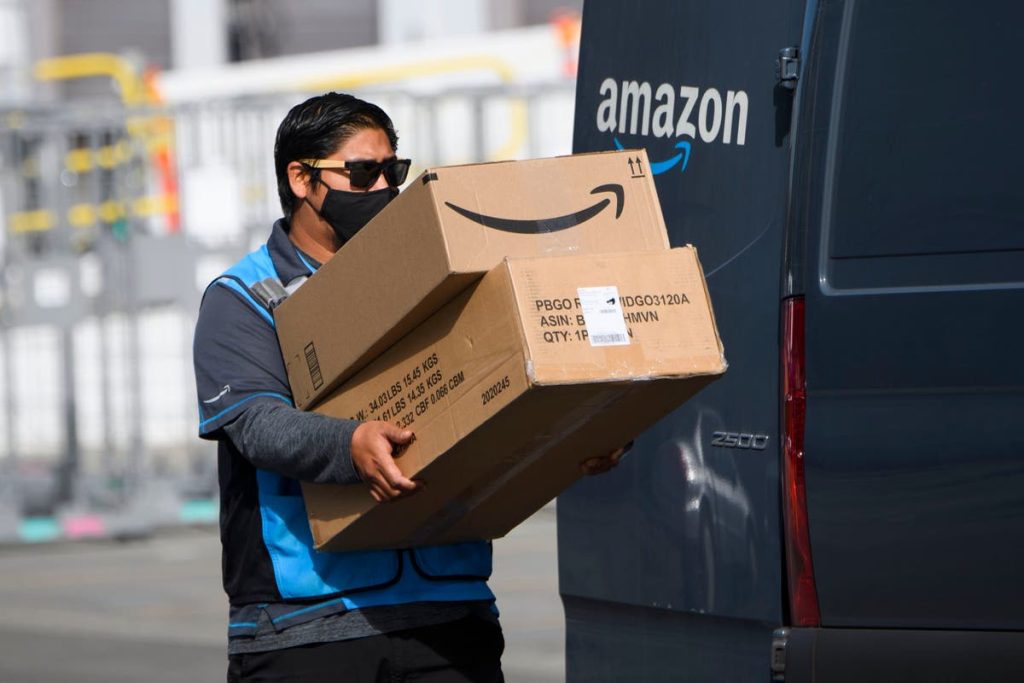Chancellor Rachel Reeves is exploring a new tax strategy aimed at fostering fairness between online giants and high street businesses.
This initiative seeks to address the existing tax disparities that have heavily impacted traditional retailers, threatening the vitality of town centres.
Proposed Tax Reforms and Their Implications
Chancellor Rachel Reeves is deliberating on a potential increase in tax for online giants such as Amazon to create fair competition for high street shops. The disparities in business rates have long disadvantaged physical stores, contributing to the decline of town centres across the UK.
Reeves’ proposal includes a comprehensive review of the UK’s intricate property tax system. This might involve raising business rates for online retailers, although such a move could result in higher prices for online customers. The British Retail Consortium (BRC) acknowledges the necessity for reform but advises against indiscriminate penalisation of online businesses.
The proposal to adjust tax rates is not just about levelling the playing field but also rethinking the structure to support local councils. With previous cuts in business rates being resisted due to their financial contribution to local authorities, a new approach is necessary to balance these interests.
Industry Reactions and Concerns
The British Retail Consortium supports the idea of reforming tax structures but cautions against targeting online retailers without considering broader implications. Tom Ironside of the BRC highlights that retail contributes significantly to business taxes, paying double that of other sectors. He urges the Treasury to explore options beyond shifting tax burdens within retail.
Previous government consultations, like the one in 2021 regarding an online sales tax, were dismissed due to complexity and insufficient revenue generation. The BRC sees a need for a strategic approach that contemplates the full impact on the retail landscape rather than isolated measures.
Industry voices have raised concerns that implementing an aggressive tax policy on online giants could trigger international trade tensions, especially with US-based companies like Amazon. Such considerations must be taken into account to avoid economic repercussions.
Alternative Tax Models and Lessons from Abroad
Different countries offer varied approaches to business taxation. Germany, for instance, levies a local business tax based on profits rather than property value, generating substantial revenue.
Adopting a profit-based tax model in the UK could relieve the pressure on high street shops while holding dominant market players accountable. However, it might allow companies that report profits abroad to escape domestic taxation.
A small-scale sales tax has been suggested as a viable solution to address profit-shifting by online businesses, potentially raising significant funds without overly burdening consumers. This approach requires careful consideration to balance competitive fairness with economic stability.
Challenges to Implementing Tax Reforms
Transitioning to new tax frameworks presents various challenges. For instance, differentiating between a fair share of taxes and overburdening specific sectors is complex. Retailers argue for reduced business rates to revitalise the high street, though this entails significant costs.
Any shift towards taxing online operations must consider potential geopolitical impacts, particularly with the US. As many major online companies are American, there is a risk of trade disputes.
Reform strategies should also consider closing loopholes that some international firms exploit, such as minimal customs charges on goods shipped directly from countries like China.
Potential Impact on Online and High Street Retailers
The proposed reforms could impact both online and brick-and-mortar retailers. High street shops, struggling under the current tax system, could benefit from reduced business rates, thus reinvigorating local economies.
Online giants might face higher operational costs if tax reforms are implemented, leading to increased product prices. However, such measures aim to create a more equitable marketplace.
Balancing these impacts is key to ensuring sustainable growth for all retail sectors, allowing for a thriving and diverse economic environment.
Broader Economic and Social Considerations
While the focus is on fair competition, the broader implications of tax changes must be examined. Reducing business rates could breathe new life into deteriorating town centres, fostering community development.
Conversely, significant tax hikes on online sales could potentially reduce consumer accessibility to affordable goods, influencing purchasing behaviours.
Policymakers face the task of crafting solutions that align economic objectives with social benefits, ensuring that decisions support both commercial vitality and community well-being.
Future Outlook and Recommendations
A nuanced approach to reform is essential. Stakeholders must collaborate to design tax structures that reflect modern retail realities, balancing fiscal needs with industry health.
Experts suggest incremental changes, such as pilot schemes for alternative tax models, to evaluate outcomes before widespread implementation.
Ultimately, strategic planning and open dialogue among government, retailers, and consumers will pave the path to a balanced and prosperous retail environment.
By contemplating these tax reforms, the UK is taking steps towards a balanced retail ecosystem.
Careful consideration and strategic action are vital to achieving fair competition and sustainable economic growth.

